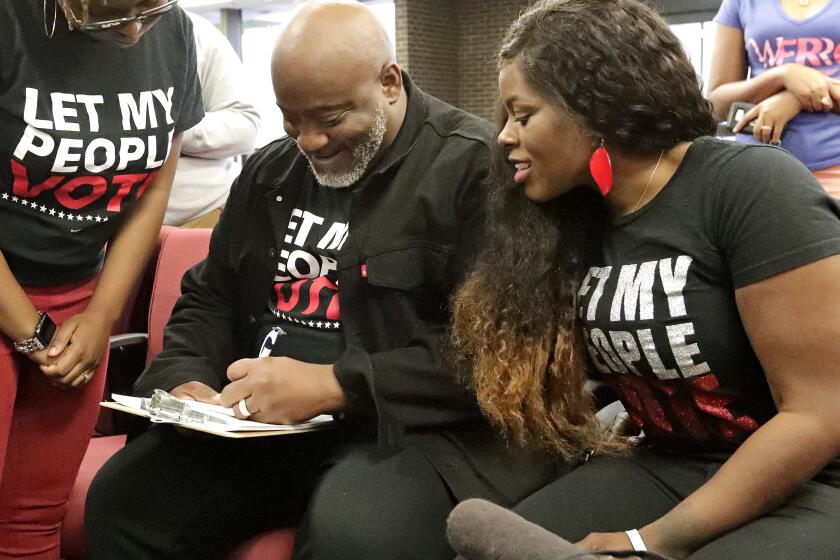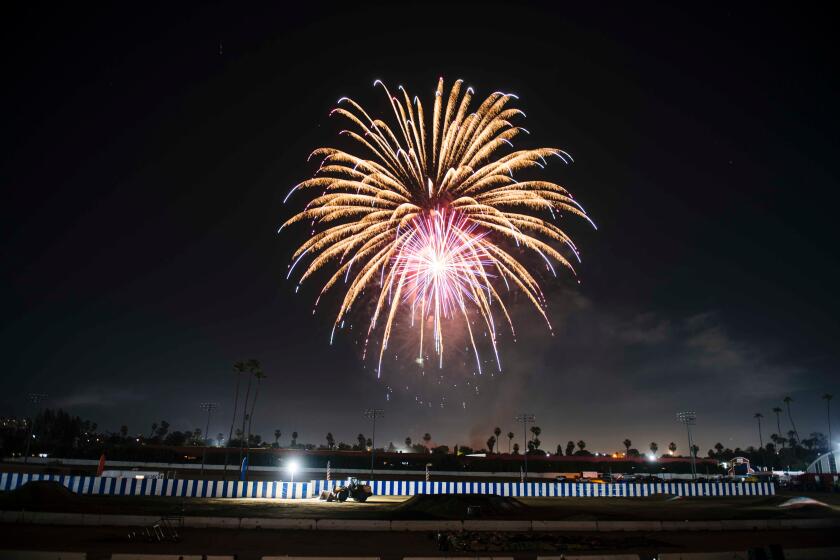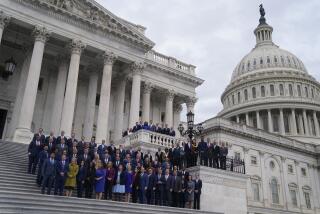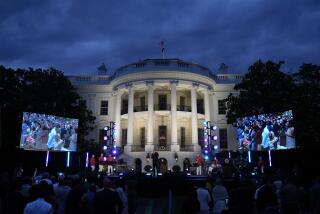Editorial: July 2 is America’s true date of birth. And rebirth
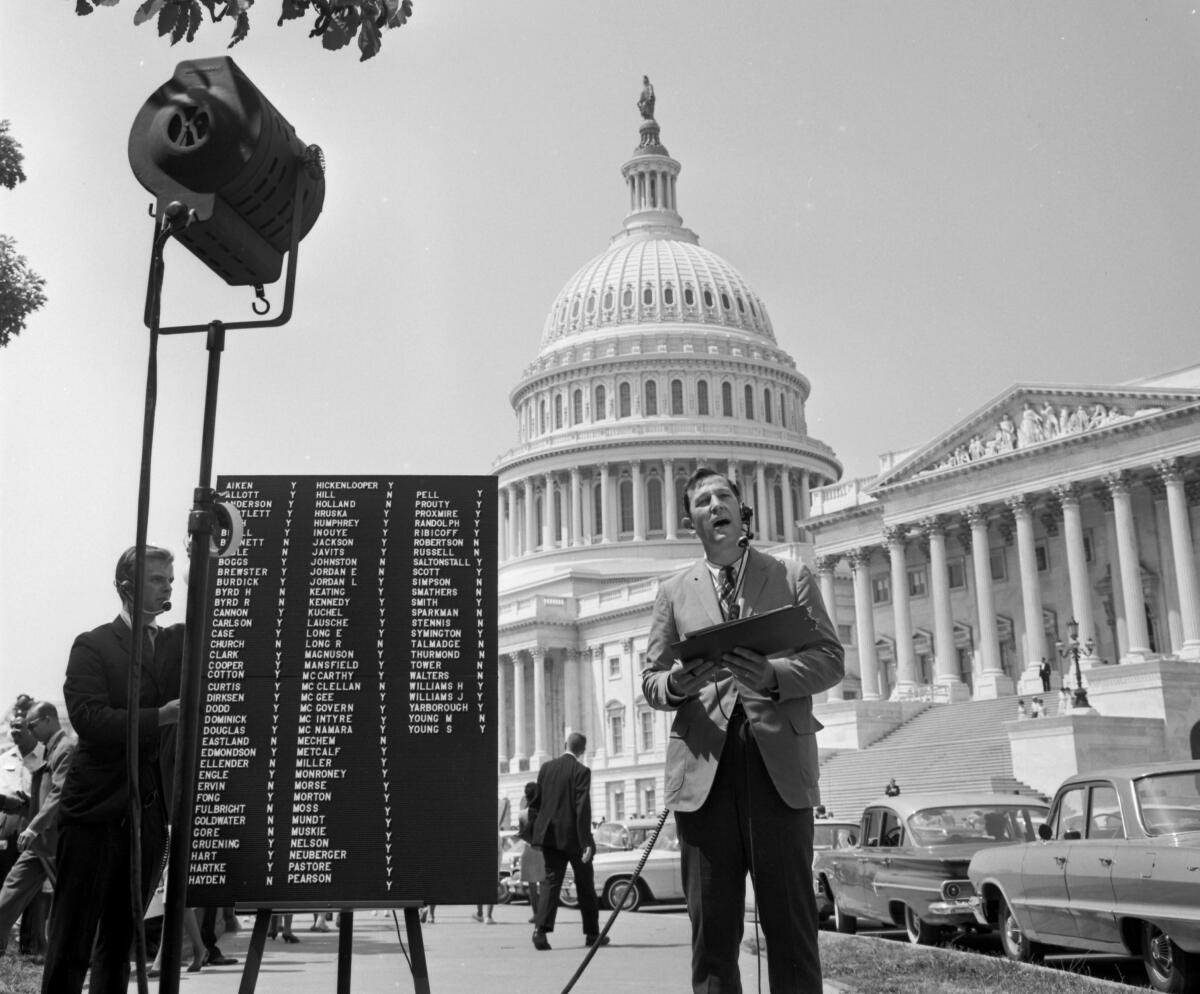
John Adams, American patriot and the nation’s second president, believed Independence Day would be celebrated annually not on the Fourth of July but on the Second.
He was off by a couple days but he had a point. It was on July 2, 1776, that Congress declared independence from Great Britain. It’s just that it took a bit longer to adopt the Declaration of Independence, drafted by Thomas Jefferson with edits and contributions from Adams and Benjamin Franklin. So although we now celebrate independence the way Adams told his wife, Abigail, that we would — with “Pomp and Parades, with [shows], Games, Sports, Guns, Bells, Bonfires and Illuminations from one End of this continent to the other” — we do it on the Fourth.
Mississippi taints its history as the battleground for democracy by celebrating Confederate Heritage Month.
Yet July 2 looms large in our national story regardless, not merely for what the founders did nearly a quarter of a millennium ago, but for the sacrifices that more recent patriots made within the lifetimes of millions of Americans still living.
The declaration, the Constitution, the Bill of Rights and numerous civil rights laws were more aspirational than real for a significant portion of the population until July 2, 1964.
That’s the day President Lyndon B. Johnson signed the Civil Rights Act of 1964.
It was only then that discrimination based on race, color, religion, sex and national origin was outlawed nationwide. It was only then that states were barred from enforcing voter registration rules differently by race, and that American liberty came within reach for millions of citizens seeking to rent a motel room, eat in a restaurant, watch a movie, ride a bus, attend school or even use a restroom.
As a civil rights activist, at his Los Angeles church and in his practice of nonviolence, James Lawson changed history. But his most important role was teacher.
It was only then that the nation’s law began to catch up with its creed: Liberty and justice for all. “Freedom Summer” was as integral to American history as the Revolution.
Resistance, especially in the South, was violent. The previous year saw a church bombing, lynchings of volunteers registering voters, children injured by blasts of fire hoses and bites of police dogs. There were calls to conscience by the Rev. Martin Luther King Jr. and other civil rights leaders and front-line workers, a March on Washington and all the pressure those events put on Congress following the assassination of President Kennedy, who had proposed the Civil Rights Act. After the House passed it in February, the Senate dickered for months before finally sending it to Johnson.
And still the job was unfinished. States continued to disenfranchise Black voters with selectively enforced literacy tests, racially discriminatory districting, harassment and intimidation. More marches and violence gave muscle to the successful drive to pass the Voting Rights Act of 1965.
Fourscore and seven years after Congress declared independence, Abraham Lincoln called for a “new birth of freedom,” and Congress and states answered with constitutional amendments ending slavery and promising equal protection and voting rights to all male citizens. But the liberty-resistant Supreme Court killed the Civil Rights Act of 1875, and the amendments remained broadly unenforced until Johnson signed the 1964 act.
Once you do your time for a criminal conviction, you deserve to have your voting rights restored. A bill by California Sen. Laphonza Butler is a small step in that direction.
The multiple rebirths of freedom offer at least two important lessons. One is that liberty and justice are by nature works perpetually in progress. Members of the Second Continental Congress were content to be free of Great Britain and struck from slave-owner Jefferson’s draft declaration the complaint that King George III permitted slavery, “a cruel war against nature itself.” Abigail Adams wrote to her husband that unless equal rights were granted to women, “we are determined to foment a Rebellion and will not hold ourselves bound by any Laws in which we have no voice or Representation.”
But enfranchisement of women and former slaves took nearly two more centuries. So did the right to choose how to love and whom to marry, and countless other freedoms. And still we are not done.
Here’s a guide to places around Los Angeles where you can celebrate the nation’s 248th birthday with fireworks and festive light displays.
The second lesson is that hard-won freedoms are not self-sustaining and must stand up against constant pushback. The Supreme Court in 2013 nullified an important portion of the Voting Rights Act of 1965 in Shelby County vs. Holder, and many states continue insidious moves to disenfranchise voters. Conservatives are targeting important 1964 Supreme Court precedents standing for the principle that each American’s vote counts equally. We have already seen the rollback of women’s rights to control their own bodies. Other ominous assaults on liberty loom.
In their later lives, colleagues-turned-enemies Adams and Jefferson repaired their friendship and wrote often to each other about the nation they helped create, but they said little about slavery. Both died on what came to be recognized as the nation’s 50th anniversary — the Fourth of July 1826, not the Second — leaving the work of perfecting liberty, and making it real for all Americans, to the generations of Lincoln, King and us today. July 2 is a good day to remember that unfinished, perpetual task.
Then, on the Fourth, the parade.
More to Read
A cure for the common opinion
Get thought-provoking perspectives with our weekly newsletter.
You may occasionally receive promotional content from the Los Angeles Times.


